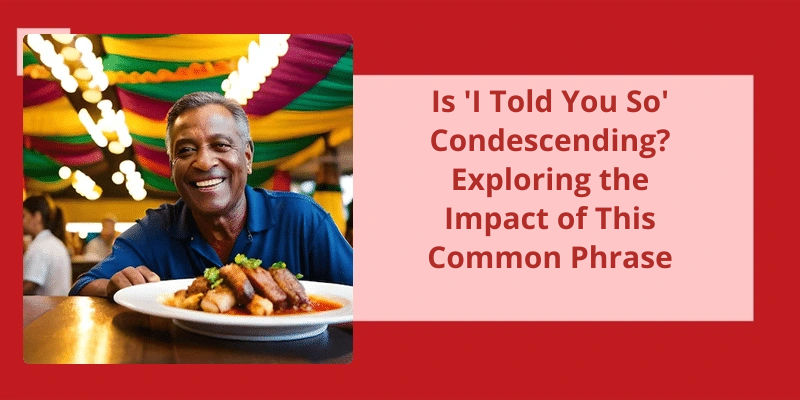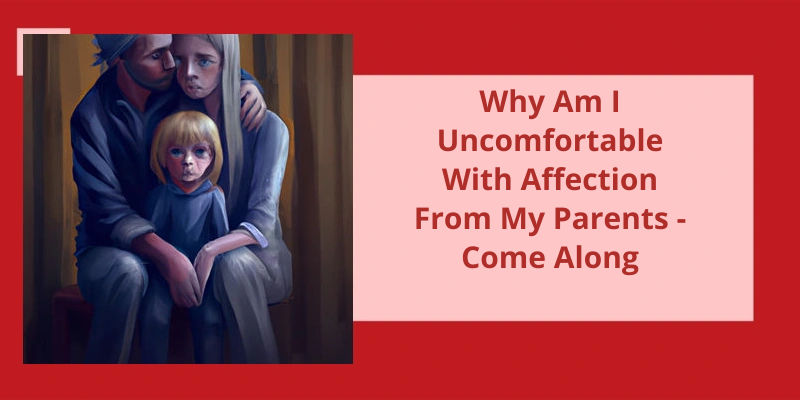There's nothing worse than receiving a condescending remark, especially when it's unsolicited. One such remark that can leave a sour taste in your mouth is "I told you so." Though it may seem harmless or even informative to the person saying it, it carries an air of smugness that can be very off-putting. Often, the phrase is uttered in moments of someone else's failure or disappointment, which only amplifies the feeling of being talked down to. In this day and age where communication is paramount, it’s essential to be mindful of how we choose to respond to others. After all, no one likes to feel invalidated or belittled, and "I told you so" accomplishes just that.
Why Do People Say I Told You So?
It’s a phrase that’s often used in a condescending manner, implying that the speaker knew better than the listener. The phrase is commonly used in situations where the speaker had previously warned the listener of a potential outcome, only to have their advice ignored or disregarded. When the outcome that the speaker predicted comes to pass, they may use the phrase “I told you so” as a way to express their frustration or disappointment in the listener.
While the phrase can be hurtful and frustrating for the listener, it’s important to remember that it often stems from a place of concern or care. The speaker may genuinely care about the well-being of the listener and may have only been trying to help. However, if the listener feels frustrated or upset by the use of the phrase, it’s important for the speaker to acknowledge their feelings and apologize for any harm caused.
If the listener feels that the speaker is always trying to prove themselves right or superior, they may be less likely to seek out their advice or guidance in the future. Similarly, the speaker may become frustrated if they feel that their advice is continually ignored or disregarded.
Ultimately, the use of “I told you so” should be avoided in situations where it may cause harm or create mistrust. Instead, it’s important for both parties to communicate openly and honestly about their thoughts and concerns. When giving advice, it’s important to do so compassionately and without judgment, while also being open to the possibility that the outcome may not be what was predicted.
However, it’s use can create resentment and mistrust between the speaker and listener, and should be avoided in situations where harm may be caused. Instead, open and honest communication should be prioritized, along with compassionate advice-giving and a willingness to accept unexpected outcomes.
How to Effectively Communicate and Give Advice Without Using “I Told You So”
When communicating and giving advice, it’s important to avoid using phrases that may come across as condescending or belittling, such as “I told you so.” Instead, focus on providing helpful and supportive feedback by using phrases like “Here are some different options to consider” or “What do you think would be the best solution in this situation?” This approach shows that you respect the other person’s decision-making abilities and are there to provide guidance, rather than criticize their choices.
Conclusion
In our daily interactions, we must always be mindful of the impact our words have on others. The phrase "I told you so" may seem harmless, but it’s underlying message can be hurtful and damaging to relationships. Instead of using this phrase, we should strive to show empathy and support to those who may have made a mistake or faced a setback. By doing so, we can create a culture of understanding and compassion, and build stronger connections with the people around us. Ultimately, the key to effective communication isn’t just what we say, but how we say it. Let's choose our words carefully and treat others with the kindness and respect they deserve.






